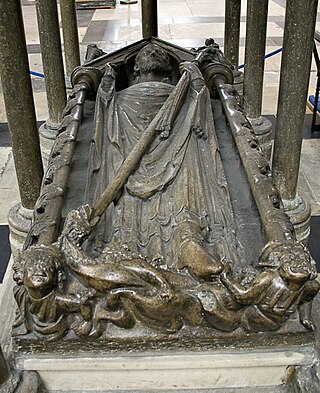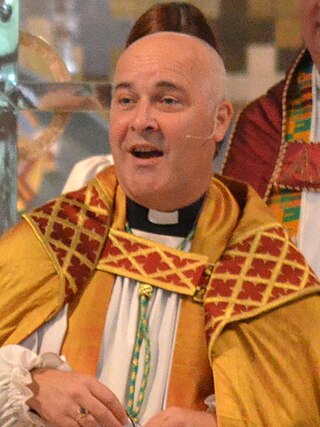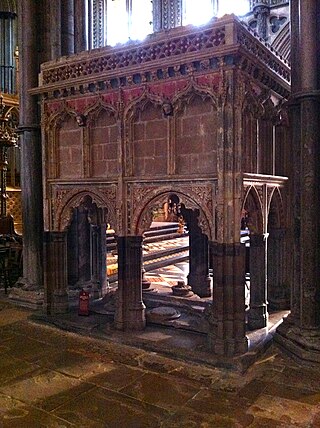Robert Winchelsey was an English Catholic theologian and Archbishop of Canterbury. He studied at the universities of Paris and Oxford, and later taught at both. Influenced by Thomas Aquinas, he was a scholastic theologian.
Walter Reynolds was Bishop of Worcester and then Archbishop of Canterbury (1313–1327) as well as Lord High Treasurer and Lord Chancellor.

Walter de Gray was an English prelate and statesman who was Archbishop of York from 1215 to 1255 and Lord Chancellor from 1205 to 1214. His uncle was John de Gray, who was a bishop and royal servant to King John of England. After securing the office of chancellor, the younger Gray was a supporter of the king throughout his struggles and was present at the signing of Magna Carta in 1215. After two unsuccessful elections to a bishopric, he became Bishop of Worcester in 1214 but soon after moved to York. During the reign of John's son, King Henry III, Gray continued to serve the king while also being active in his archdiocese. He died in 1255 and was buried at York Minster, where his tomb still survives.
Gerard was Archbishop of York between 1100 and 1108 and Lord Chancellor of England from 1085 until 1092. A Norman, he was a member of the cathedral clergy at Rouen before becoming a royal clerk under King William I of England and subsequently his son King William II Rufus. Gerard was appointed Lord Chancellor by William I, and he continued in that office under Rufus, who rewarded him with the Bishopric of Hereford in 1096. Gerard may have been with the king's hunting party when William II was killed, as he is known to have witnessed the first charter issued by the new king, Henry I of England, within days of William's death.

William Giffard, was the Lord Chancellor of William II and Henry I, from 1093 to 1101, and Bishop of Winchester (1100–1129).

William Melton was the 43rd Archbishop of York (1317–1340).

Godfrey Giffard was Chancellor of the Exchequer of England, Lord Chancellor of England and Bishop of Worcester.
Eustace was the twenty-third Lord Chancellor of England, from 1197 to 1198. He was also Dean of Salisbury and Bishop of Ely.
Nicholas of Ely was Lord Chancellor of England, Bishop of Worcester, Bishop of Winchester, and Lord High Treasurer in the 13th century.
Walter Giffard was Lord Chancellor of England and Archbishop of York.
John Langton was a chancellor of England and Bishop of Chichester.

William de la Zouche (1299–1352) was Lord Treasurer of England and served as Archbishop of York from 1342 until his death.

John de Ufford was chancellor and head of the royal administration to Edward III as well as being appointed to the Archbishopric of Canterbury.
John of Thoresby was an English clergyman and politician, who was Bishop of St David's, then Bishop of Worcester and finally Archbishop of York. He was Lord Chancellor of England under King Edward III starting from 1349.

The archbishop of York is a senior bishop in the Church of England, second only to the archbishop of Canterbury. The archbishop is the diocesan bishop of the Diocese of York and the metropolitan bishop of the province of York, which covers the northern regions of England as well as the Isle of Man.
Thomas Cobham was an English churchman, who was Archbishop-elect of Canterbury in 1313 and later Bishop of Worcester from 1317 to 1327.

John Hotham was a medieval Chancellor of the Exchequer, Lord High Treasurer, Lord Chancellor and Bishop of Ely. He was also the effective Governor of Ireland for a time.
Simon was a medieval Bishop of Worcester.

Richard Marsh, also called Richard de Marisco, served as Lord Chancellor of England and Bishop of Durham.









